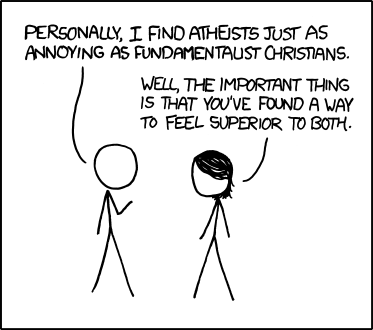The previous post in this series is here.
In the comment stream of another post, I wrote the following in response to a question, and then I realized it really belonged in the “Misusing Scripture” series, so after minor editing here it is….
Re: the “turn your cheek” comment of Jesus, it is a mistake to try to turn such comments into fully-orbed theories of human interaction and just response to threat.
Every time you see in the New Testament a suggestion about how individuals should respond to individuals with whom they are in conflict in some way, I suggest always rewriting the scripture so that the potential or actual victim is an innocent child. Then review what the responsibilities of adults are, to children. Then consider that in God’s eyes, we ALL are children, and furthermore, children He wants to adopt.
If you run an orphanage, you do not tell weaker children to let stronger children prey upon them. You do not stand by and watch as one beats another, even if you must use force to stop it, perhaps even risking danger to yourself. And if you have a truly difficult case (a child who is in fact a threat to the group, and possibly strong enough to threaten YOU), you may have to use considerable force to stop a situation from getting out of hand. And this is key: you absolutely must protect yourself in the process, because if you don’t, who will protect the rest of the children?
The fundamental flaw in “proof-texting” for non-violence in the scriptures is that nearly all such scriptures are about individual responses to particular kinds of situations, NOT about corporate responsibilities (i.e., the responsibilities of governments and families to protect those for whom they are responsible), and even those about individual responses are often more metaphoric than anything.
Some will quote Paul: “If your enemy is hungry, feed him;
if he is thirsty, give him something to drink.
In doing this, you will heap burning coals on his head.”
But this presumes I have the power to feed an enemy who does not have the power to feed himself. It assumes I have the power to give him a drink, which he will not have without me, else he will not now be thirsty. In other words, it assumes my enemy is the one now in discomfort or disarray, and that he is no particular threat to me at the moment. What other reasonable explanation could there be that I have food and drink to share, and he does not?
Paul is not saying that if someone is threatening your family, you should offer them a happy meal. Nor is he saying that the USA should have shipped food to NAZI Germany instead of invading it. Although, and this is key to the American ethos in such matters, we did go to considerable lengths to rebuild Germany after it was no longer a threat to us, which is exactly the kind of situation Paul must have been referring to in his statement.
Some say, “I’d say loving our enemies means caring for their family after they’ve killed mine.” The problem is that if you are doing that before you STOP your enemy from killing anyone else’s family, out of an excess of misplaced piety, you are showing NO LOVE AT ALL to the future victims of the murderer.
Will you be delivering food to the family of the murderer when they are still hiding him in the basement? And planning his escape into the next county? If so, what will be your responsibility for the future victims of the murderer? And what about justice, even if you are certain the murderer will never kill again? Keep in mind that the visible presence of that justice in society (and in international relations) is one thing restraining OTHER potential murderers. It is not mere “score settling.”
Jesus’ “turn the other cheek” comment is metaphorical about general human interaction, and exactly on par with other comments He made about “soft answers” and the like. Despite the physical metaphor, it is not mostly about physical violence, else, given His propensity for eye-catching metaphor, He might have said, “If someone strikes you over the head with a club and knocks you cold, when you awaken, stand up and give him a better target next time.” Or, “If someone cuts off your right arm with a sword, offer him your left arm, too.” This last would have been perfectly in character, if He had meant that. And he made metaphors that strong in other places.
The reason Jesus chose the “cheek” metaphor is precisely because a slap of the cheek is not serious, is unlikely to cause significant harm, is mostly merely insulting, and He is suggesting that we be able to tolerate mere insult without over-reaction or escalation of the conflict, insofar as we have control over it.
It is NOT a general comment about not defending yourself (or your family, or your nation) when required, and it certainly is not a general comment encouraging the neglect of others who are in danger (which often includes protecting them), nor is it a statement that allows us to escape the demands of justice, which includes our responsibility to prosecute it when required.
The next post in this series is here.





